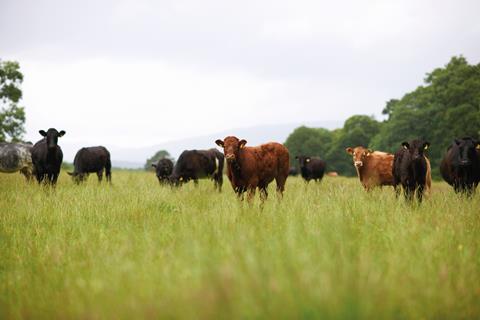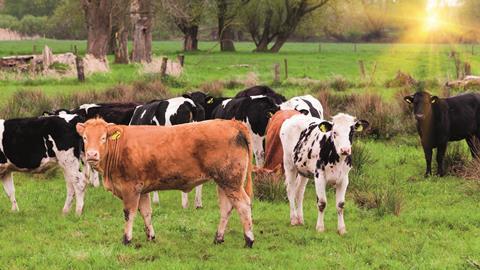SPOTLIGHT FEATURE: Methane mitigators are essential tools in the global effort to reduce greenhouse gas (GHG) emissions, particularly within the agricultural sector. Methane, though less abundant than carbon dioxide, has a significantly higher global warming potential, making its mitigation a critical component of climate strategies.

Greenhouse gases originate from various sources, broadly classified into biogenic and fossil fuel categories. Biogenic GHGs are emitted from natural processes, such as the digestion in ruminant animals and the decomposition of organic matter. These emissions are part of the Earth’s short-term carbon cycle, where carbon is absorbed by plants through photosynthesis and later released back into the atmosphere. In contrast, fossil fuel GHGs result from the combustion of long-buried carbon sources like coal, oil, and natural gas. This process releases carbon that has been sequestered for millions of years, adding to the atmospheric carbon load and disrupting the natural carbon balance.
Applying modern scientific advancements in the agri-livestock sector is vital for effective methane mitigation. Innovations such as dietary supplements, feed additives, and breeding programmes aim to reduce enteric methane emissions from ruminants. These strategies not only decrease GHG emissions but also enhance animal productivity and health, underscoring the sector’s proactive role in addressing climate change.
The agricultural sector is often viewed as a significant contributor to GHG emissions. However, with the adoption of sustainable practices and methane mitigation technologies, it becomes a crucial part of the climate solution.
The agricultural sector is often viewed as a significant contributor to GHG emissions. However, with the adoption of sustainable practices and methane mitigation technologies, it becomes a crucial part of the climate solution. By integrating these practices, agriculture can reduce its environmental footprint while continuing to provide essential food resources.
Various methane mitigators function through different mechanisms:
- Feed Additives: Compounds like 3-nitrooxypropanol (3-NOP) inhibit enzymes involved in methane production during digestion, leading to significant reductions in emissions.
- Seaweed Supplements: Species such as Asparagopsis taxiformis contain bromoform, which disrupts methane synthesis in the rumen, achieving reductions of up to 98% in methane emissions.
- Dietary Adjustments: Incorporating fats or oils can decrease methane production by altering rumen fermentation patterns and inhibiting methanogenic archaea.
Meat production, particularly from ruminants, offers a high-value protein source. When managed sustainably, it can be more efficient and environmentally friendly compared to alternatives like soya. Soya cultivation often leads to deforestation and habitat loss, resulting in significant carbon emissions. In contrast, well-managed livestock systems can utilise non-arable lands and convert inedible plant materials into nutritious food, thereby minimising environmental degradation.
“Agri-tech when combined with well managed livestock are amongst the best ways to reduce greenhouse gas (GHG) emissions, particularly within the agricultural sector”, said Dr Jason Aldiss, head of External Engagement at AIMS.
“As a vet working in the meat industry, I firmly believe that applying modern scientific advancements to inhibit environmental impacts such as feed additives, seaweed supplements and dietary adjustments is vital for effective methane mitigation.
“Meat production, particularly from ruminants, offers a high-value protein source. When managed sustainably, it can be more efficient and environmentally friendly compared to alternatives like soya.”
Aldiss concluded: “Whilst some may disagree, farming and food processing are essential to humanity. Developments in feed to mitigate methane emissions demonstrate an industry that is making a positive contribution to the UK Government’s net zero ambitions.”
In conclusion, the responsible application of modern science in the agri-livestock sector is essential for effective methane mitigation. By adopting innovative strategies and recognising the sector’s potential for positive environmental impact, agriculture can transition from being perceived as part of the problem to becoming a pivotal element of the climate solution.

















